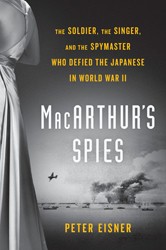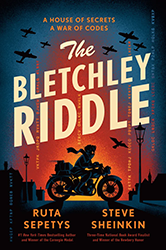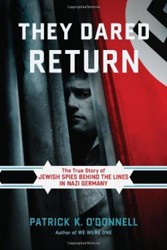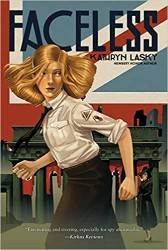Most Jews know Hannah Senesh as the author of the poem and song “Eli, Eli.”
But, as this book makes clear, Hannah Senesh was far more than a poet. She was a soldier and a spy — a woman who chose to parachute into Hungary in an attempt to rescue her people.
Douglas Century retells Hannah Senesh’s story with a vital urgency and relevance for today. The result: a page-turner of a book that reads almost like a novel.
Anna Szenes was born in Budapest in 1921 to an assimilated, cultured family. As Hungary became increasingly antisemitic, Hannah joined a Zionist youth movement. She wrote: “… Anti-Semitism is an illness that can neither be fought against with words nor cured with superficial treatment. It must be treated and healed at its very roots.” She learned Hebrew, and at eighteen left Hungary for Mandatory Palestine, settling at Kibbutz Sdot Yam.
“Eli, Eli” was written in Caesarea, the ancient Roman capital of Judea, where ancient sages were martyred. Hannah drew inspiration from those stories. “Those proud rabbis had never cowered, never broken under torture, never renounced their faith. Instead, they had chosen to die al Kiddush Hashem.” It is almost as if she could foresee her own martyrdom. When the British sought volunteers from the Yishuv for a secret mission into Nazi-occupied Europe, Senesh stepped forward. Hannah parachuted into Hungary, and was quickly captured.
The rest of the story is well-known, and simultaneously heartbreaking and inspirational (it has also become a Broadway show). The author does not tell this story as a tragedy. Hannah Senesh was not a victim. Rather, she was a warrior who believed that Jewish dignity required Jewish strength. Her gender is also significant. Much of the historiography of the Holocaust focuses on men, and when it tells women’s stories, they tend to be victims. We cannot only know about Anne Frank’s attic. We must also know of Hannah Senesh’s parachute.
This book comes out close to the second anniversary of October 7. New York, 2025 is not Budapest, 1938. But, Jews are under assault. Jewish courage — especially female courage — is like a match that is consumed in flame. Crash of the Heavens conveys a powerful lesson: Jewish heroism coexists in both verse and valor.





